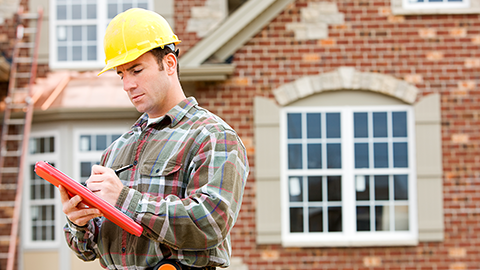
Not every state requires home inspectors to obtain a license to do home inspections. Before you hire someone, check the home inspection requirements in your state. Your real estate agent will likely recommend a few inspectors, but you should call and interview them before hiring. Ask for references and a sample inspection report. Find out if they are bonded and insured. Also, examine their website and read reviews on Google, Yelp and Angie’s List™.
Inspections should be thorough with final reports often 25-80 pages long. Key areas that should be included are structural components, exterior features, electrical, plumbing, heating and cooling systems, insulation and ventilation, fireplaces, roof and crawl space. Don’t be afraid to ask questions and insist these areas be examined before they turn in their final report. Most home inspections cost between $350 and $600. If they ask for significantly more or less, that may be a red flag.
Know Your Home Inspection Options
Depending on the home’s age and condition, you may want to perform additional inspections. For instance, properties that do not have access to public sewer systems should have the septic system inspected. Similarly, a home that is not connected to public water should have the well and water tested. A pest inspection to check for termites or other wood destroying insects is also valuable. While all of these inspections may cost money up front, they may save you thousands of dollars in future repairs.
Understand the Benefits of Home Inspection
A thorough and professional home inspection allows you to examine any red flags before you decide to purchase a home. Sewer and drainage issues, such as standing water in the yard, erosion and heaved walkways may indicate the need for expensive fixes in the future. Check to see if the home is in a flood zone and look closely for any water damage or mold. Find the source of the mold or water damage and assess the costs to repair it before making a decision to buy. Foundation and electrical issues are also red flags in any inspection. Electrical issues may increase the chance of fire and major foundation issues may cost up to $10,000 to repair.
Negotiate Repairs that Protect Your Home
If you feel confident in the results of the inspections and are ready to move forward, another round of negotiations will likely occur to discuss fixes or buyer/seller cost responsibilities. How these negotiations play out depends on the issues discovered during the home inspection. Remember, very few inspections are perfect. You may ask the seller to repair the issues before closing, however sellers are not always motivated to have high-quality work done. Instead, you may want to ask for a price reduction for repairs. You may also ask for a home warranty to cover the first year in case you need to repair the 25-year-old water heater or other appliances. Work closely with your realtor to determine how to approach repairs.
Lenders at RCB Bank are happy to help answer questions even if you are not a customer. Give us a call or visit our online Mortgage Center.
Opinions expressed above are the personal opinions of the author and meant for generic illustration purposes only. For specific questions regarding your personal lending needs, please call RCB Bank at 855-BANK-RCB. With approved credit. Some restrictions apply. Equal Housing Lender, Member FDIC. RCB Bank NMLS #798151.